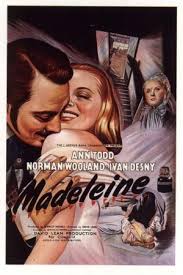
Sir David Lean was an English film director, producer, screenwriter and editor. Widely considered one of the most important figures of British cinema, Lean directed the large-scale epics The Bridge on the River Kwai (1957), Lawrence of Arabia (1962), Doctor Zhivago (1965), Ryan's Daughter (1970), and A Passage to India (1984). He also directed the film adaptations of two Charles Dickens novels, Great Expectations (1946) and Oliver Twist (1948), as well as the romantic drama Brief Encounter (1945).
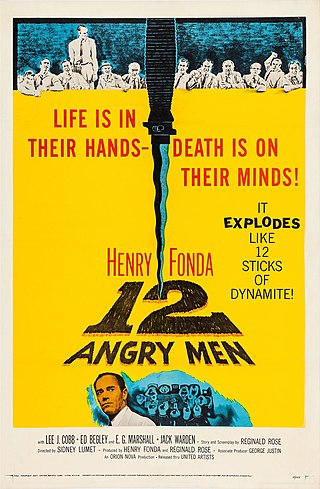
12 Angry Men is a 1957 American legal drama film directed by Sidney Lumet, adapted from a 1954 teleplay of the same name by Reginald Rose. The film tells the story of a jury of 12 men as they deliberate the conviction or acquittal of a teenager charged with murder on the basis of reasonable doubt; disagreement and conflict among them force the jurors to question their morals and values. It stars Henry Fonda, Lee J. Cobb, Ed Begley, E. G. Marshall, and Jack Warden.

The Paradine Case is a 1947 courtroom drama with elements of film noir set in England, directed by Alfred Hitchcock and produced by David O. Selznick. Selznick and an uncredited Ben Hecht wrote the screenplay from an adaptation by Alma Reville and James Bridie of the 1933 novel by Robert Smythe Hichens. The film stars Gregory Peck, Ann Todd, Alida Valli, Charles Laughton, Charles Coburn, Ethel Barrymore, and Louis Jourdan. It tells of an English barrister who falls in love with a woman who is accused of murder, and how it affects his relationship with his wife.

Kathleen Walsh was an English actress, dancer, and screenwriter. Her film career prospered after she met her future husband film director David Lean, with whom she worked on prestige productions such as In Which We Serve and Oliver Twist.
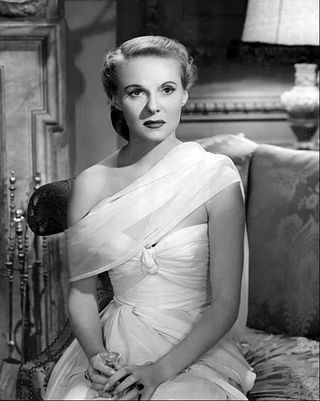
Dorothy Ann Todd was an English film, television and stage actress who achieved international fame when she starred in The Seventh Veil (1945). From 1949 to 1957 she was married to David Lean who directed her in The Passionate Friends (1949), Madeleine (1950), and The Sound Barrier (1952). She was a member of The Old Vic theatre company and in 1957 starred in a Broadway play. In her later years she wrote, produced and directed travel documentaries.

Madeleine Hamilton Smith was a 19th-century Glasgow socialite who was the accused in a sensational murder trial in Scotland in 1857.
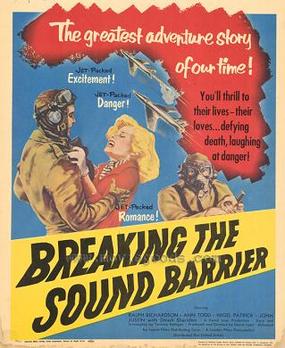
The Sound Barrier is a 1952 British aviation drama film directed by David Lean. It is a fictional story about attempts by aircraft designers and test pilots to break the sound barrier. It was David Lean's third and final film with his wife Ann Todd, but it was his first for Alexander Korda's London Films, following the break-up of Cineguild. The Sound Barrier stars Ralph Richardson, Ann Todd, John Justin and Nigel Patrick. It was known in the United States as Breaking Through the Sound Barrier and Breaking the Sound Barrier.
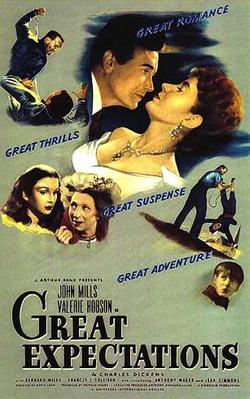
Great Expectations is a 1946 British drama film directed by David Lean, based on the 1861 novel by Charles Dickens and starring John Mills and Valerie Hobson. The supporting cast included Bernard Miles, Francis L. Sullivan, Anthony Wager, Jean Simmons, Finlay Currie, Martita Hunt and Alec Guinness.

Oliver Twist is a 2005 drama film directed by Roman Polanski. The screenplay by Ronald Harwood adapts Charles Dickens's 1838 novel of the same name. It is an international co-production of the United Kingdom, the Czech Republic, France and the United States.
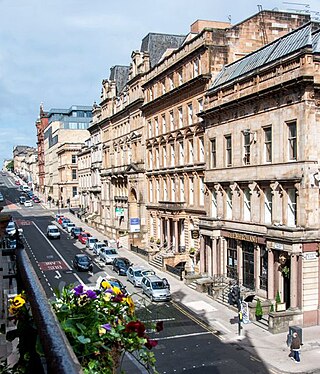
Blythswood Hill, crowned by Blythswood Square, is the wealthiest part of central Glasgow, Scotland. It extends from the west edge of Buchanan Street to Gordon Street and Bothwell Street, Charing Cross, Sauchiehall Street and Garnethill. Developed from 1800 onwards, its Georgian and Victorian architecture is a Conservation Area. It started as the "Magnificent New Town of Blythswood" becoming a part of the city-centre's business and social life.
John House was a prolific and popular Scottish writer and broadcaster, with a significant attachment to the City of Glasgow.
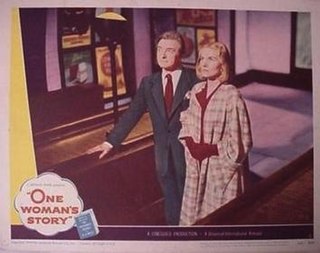
The Passionate Friends is a 1949 British romantic drama film directed by David Lean and starring Ann Todd, Claude Rains and Trevor Howard. The film is based on The Passionate Friends: A Novel (1913) by H. G. Wells. It describes a love triangle in which a woman cannot give up her affair with another man. The film was entered into the 1949 Cannes Film Festival.

Norman Wooland was an English character actor who appeared in many major films, including several Shakespearean adaptations.

Mrs. Harris is a 2005 American-British made-for-television drama film written and directed by Phyllis Nagy. The teleplay, based on the book Very Much a Lady by Shana Alexander, focuses on the tempestuous relationship between Herman Tarnower, noted cardiologist and author of the New York Times bestseller The Complete Scarsdale Medical Diet, and headmistress Jean Harris. Produced by Killer Films, Number 9 Films, and John Wells for HBO Films, it premiered at the Toronto International Film Festival on September 16, 2005, before its broadcast on HBO on February 25, 2006.

Pinocchio's Revenge is a 1996 American psychological slasher film written and directed by Kevin S. Tenney and distributed by Trimark Pictures. It stars Rosalind Allen and Todd Allen and was released direct-to-video. The film's plot concerns a lawyer who brings home a wooden puppet that was found buried with a boy supposedly killed by his father. Her 8-year-old daughter Zoe sees the doll and takes it as her own. Soon accidents start happening and Jennifer struggles to find the cause as she begins to question her daughter's wellbeing and whether or not there may be something sinister to the doll. The movie is closer "to Don Mancini's original intent for Child's Play".

Dishonored Lady is a 1947 American film noir crime film directed by Robert Stevenson and starring Hedy Lamarr, Dennis O'Keefe and John Loder. It is based on the 1930 play Dishonored Lady by Edward Sheldon and Margaret Ayer Barnes. Lamarr and Loder were married when they made the film, but they divorced later in 1947.
The Square Mile of Murder relates to an area of west-central Glasgow, Scotland. The term was first coined by the Scottish journalist and author Jack House, whose 1961 book of the same name was based on the fact that four of Scotland's most infamous murders were committed within an area of 1 square mile.
Cineguild Productions was a production company formed by director David Lean, cinematographer Ronald Neame and producer Anthony Havelock-Allan in 1944. The company produced some of the major British films of the 1940s.
Events from the year 1857 in Scotland.
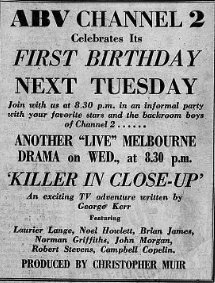
Killer in Close-Up was a blanket title covering four live television drama plays produced by the Australian Broadcasting Commission in 1957 and 1958. It could be seen as the first anthology series produced for Australian television.
